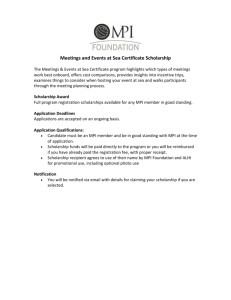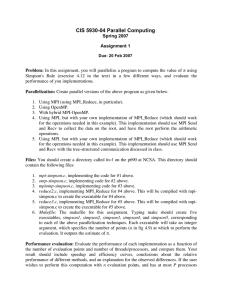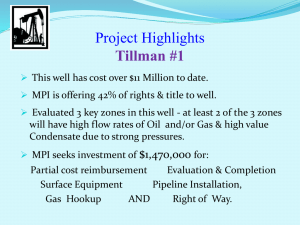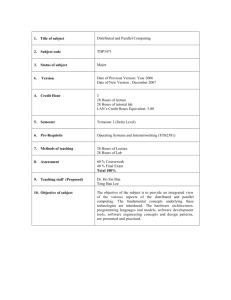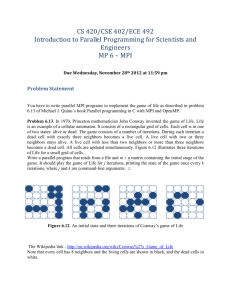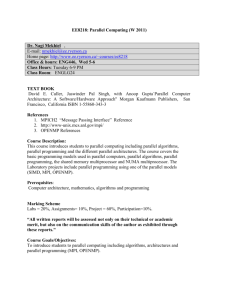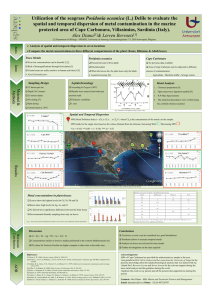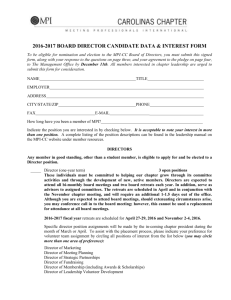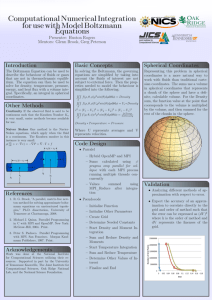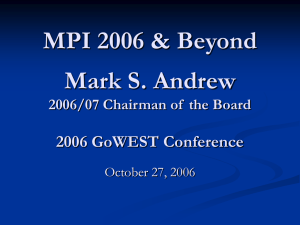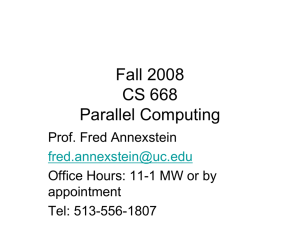APART and OSPAT summary slides
advertisement
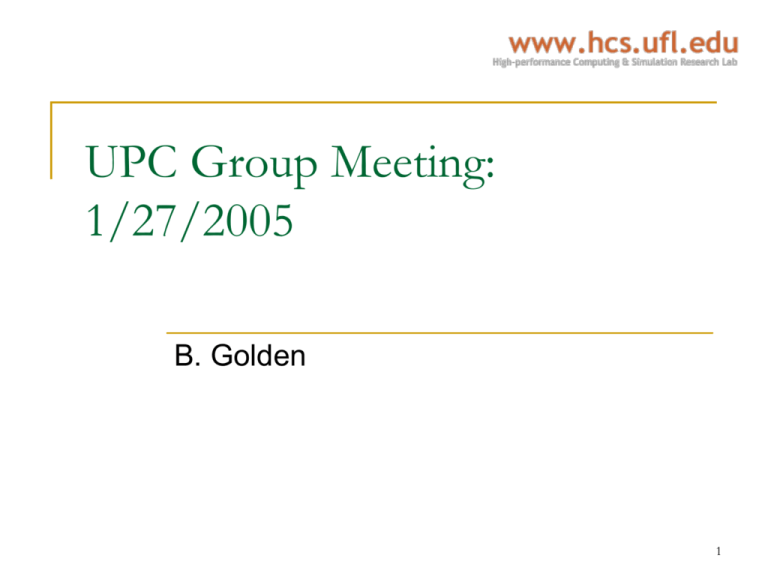
UPC Group Meeting: 1/27/2005 B. Golden 1 APART Introduction Proposal Summary Name: Automatic Performance Analysis: Resources and Tools (APART) Mostly European Consortium with a few American Universities and Companies Mission: “To promote the efficient use of parallel computers by enhancing the support for automatic performance analysis provided to application developers” Determine the requirements for automatic performance analysis through the analysis of: Motivation Programming interface Application areas Application programmers Available performance monitoring support Future machine designs What is the nature of performance analysis? What is the purpose of performance analysis? What could be automated in performance analysis? Goals Form a forum of tool experts, parallel computer vendors, and software companies to discuss automation of performance analysis tools Identify Requirements for automatic performance analysis support Knowledge about typical performance bottlenecks Base implementation technologies Focus on scientific applications on parallel computers 2 APART Members American Universities Associated Partners Forschungszentrum Jülich Hungarian Academy of Sciences Computer and Automation Research Institute European Companies Universitat Autònoma de Barcelona Pozman Supercomputing and Networking Center University of Cyprus IBM Resarch, T.J. Watson Research Center Sun Microsystems Lawrence Livermore National Laboratory University of Wales, Cardiff European Research Centers Louisiana State University - Baton Rouge (Phase 1) University of Oregon University of Wisconsin – Madison Portland State University University of Illinois - Urbana-Champaign Northwestern University Cornell University North Caroline State University University of Tennessee Fujitsu European Centre for Information Technology NEC Europe Ltd. European Universities Technische Universität Dresden Universidad de Málaga Victoria University of Manchester Technische Universität München Università di Pavia University of Vienna 3 APART Documents APART Phase 1 (1999 – 2000) Workpakages WP1: Requirements for Automatic Performance Analysis Programming models (MPI, data parallel, task parallel) Application areas Application programmers Available performance monitoring support Future machine designs WP2: Identification and Formalization of Knowledge Identification of bottlenecks on different architectures and programming models Identification of proof rules Identification of suitable knowledge representation techniques WP3: Implementation Issues Collect existing base technologies (OMIS, dynInst, SDDF, ToolTalk, CORBA, PCTE) Develop designs for future automatic performance analysis tools taking into account its integration into existing environments Reports APART Phase 2 (2001 – 2004) WP3 Requirements for Automatic Performance Analysis (Nov 1999) Knowledge Specification for Automatic Performance Analysis (Jan 2001) Specifying Performance Properties Using Compound Runtime Events (Aug 2000) State-of-the-Art in Automatic Performance Analysis (Feb 2000) Automatic Performance Analysis – Roadmap Report (Jan 2001) Use Cases and the Proposed Grid Monitoring Architecture Comparison of Representative Grid Monitoring Tools Performance Evaluation on Grids: Directions, Issues, and Open Problems White Paper on Grid Performance Analysis Proceeding of the (6th) International APART Workshop (SC2004) Apart Specification Language (ASL) for specifying performance bottlenecks Conclusion: There are many documents posted on their website which may be of use to us. Additionally, we may be able to establish academic/industry contacts with the (former) members of this group. 4 OSPAT Open Source Performance Analysis Tools Allows tool developers, users, and software/hardware vendors to discuss issues related to performance analysis New organization with its first meeting at SC2004; topics included Current situation in the area of performance tools The need to create an R&D consortium An overview of the Eclipse parallel tools project at LANL How OSPAT will be different from PTools (Created PAPI, but not much else) Whether OSPAT should produce documentation or software Two approaches to tool interoperability Possible investigation into Work together on a case-by-case basis Plug-in to a bigger framework A common instrumentation API for source, compiler, library, and binary-level instrumentation A common probe interface for routine entry and exit events A common profile database schema An API to walk the callstack and examine the heap memory A common API for thread creation and fork interface Visualization components for drawing histograms and hierarchical displays typically used by performance tools Funding/Membership issues Archives of everything Conclusion: We should stay on the mailing list, but OSPAT seems to be in too early of a stage to be of any use to us at this point 5 MPI Contacts Three sources of contact MPI forums Web-based forums Post a link to our survey webpage Ask for volunteers if interested Performance tool groups Ask members for user lists/ideas on finding users Ask if members would be willing to participate themselves Groups PTools OSPAT APART UPC/SHMEM users Ask if they know any MPI users Ask if they have any experience with MPI tools themselves 6 Open Source SpeedShop Name: Open/SpeedShop Linux-Based Funded by DOE’s National Nuclear Security Administration (NNSA) Projected Release: Summer 2006 SGI collaboration with the University of Wisconsin and the University of Maryland SpeedShop Functionality to be incorporated into Open Source version Detect memory leaks Pinpoint system resource usage Help users identify/eliminate performance bottlenecks Support for single system image and cluster configurations Exclusive and inclusive user time sampling Program counter sampling MPI call tracing I/O tracing Floating point exception tracing Hardware performance counter experiments Dynamic instrumentation Modular design to user extensions SGI plans to continue to independently develop a commercial Pro-series version 7
